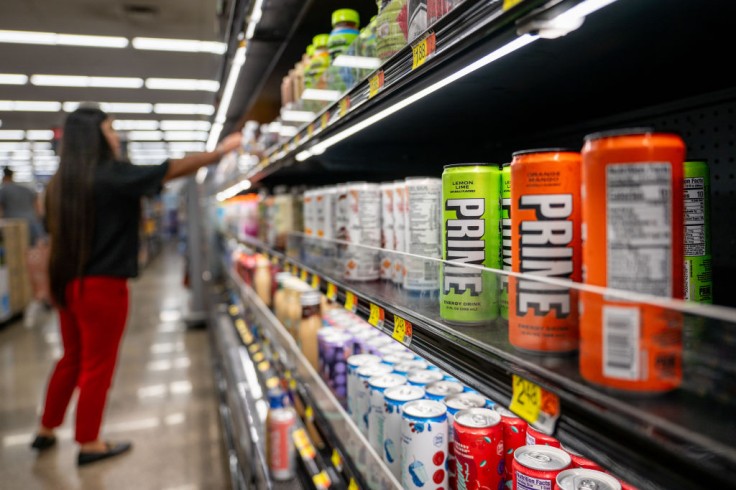
A government-commissioned study disclosed that up to one-third of children in the UK, particularly boys, gobble at least one energy drink per week.
These drinks, often carrying twice the caffeine of a cup of coffee and high sugar levels, have caused some supermarkets to voluntarily abstain from selling them to those under 16. Despite such acts, they remain readily available in smaller shops and vending machines.
Growing corroborations of the adverse effect on children's mental and physical health, along with concerns about marketing practices, has caused considerations for stern regulations.
Energy Drink Consumption Among Children
Recent research associated to energy drink consumption to increased stress, anxiety, poor academic performance, and even the risk of suicide has escalated calls for limitations.
The Labour Party is reportedly examining a ban on the sale of these drinks to individuals under 16 if it comes into power. Such a move ranges with the findings of a 2019 government consultation, which advanced a ban supported by 93% of respondents.
However, the ban has not been executed, and the British Soft Drinks Association highlighted its voluntary code of practice of dispirited marketing to those under 16, along with advice notes on their products expressing "not recommended for children."
Countries such as Latvia and Lithuania have already implemented bans on the sale of energy drinks to children.
The discussion of a ban by Labour aligns with the appeals of over 40 health organizations, including the Royal College of Paediatrics and Child Health and the British Medical Association.
Teaching unions highlighted the role of these drinks in poor pupil behavior and advocate for a long-overdue ban. Sales of sports and energy drinks pursue to move, extending £2.2 billion in 2023, a 21.6% rise from the previous year.
Concerns about health change were heightened by a recent occurrence where a primary school pupil was hospitalized with heart issues after ingesting a Prime Energy drink, causing resumed calls for regulatory measures.
The Prime brand, recommended by influencers Logan Paul and KSI, has gained popularity among young people, leading to videos of supermarkets being flocked when the product is in stock.
A can of Prime Energy holds 140mg of caffeine, nearly double the amount found in a mug of coffee, and convey a label advising against consumption by children under the age of 18.
Cans of Rockstar, Monster, and Prime Energy contain 200mg, 160mg, and 140mg of caffeine, respectively, about twice the amount found in an average cup of coffee.
Labour is taking into consideration including the ban on sales to under-16s into its election platform.
Over 40 health organizations, including the Children's Food Campaign, have urged Health Secretary Victoria Atkins and her Labour counterpart Wes Streeting to promptly enforce a ban on energy drinks.
Signatories include the Royal College of Paediatrics and Child Health, British Dental Association, Diabetes UK, and the British Medical Association.
Children Health at Risk
Barbara Crowther from the Children's Food Campaign emphasized that companies profiting from energy drinks should not jeopardize child health.
Despite the government's commitment to banning the sale to under-16s five years ago, it has not materialized, and increasing evidence points to the harmful effects of over-caffeinated drinks on children.
Teaching unions have expressed heed about the influence of energy drinks on student behavior and learning.
NASUWT General Secretary Patrick Roach called for a veto on these readily obtainable legal highs for young people. Sales of sports and energy drinks continue to rise, reaching £2.2 billion in 2023, a 21.6% growth from the previous year.
A recent occurrence involving a primary school pupil being hospitalized with heart problems after consuming a Prime Energy drink has reignited calls for regulatory action.
The Prime brand's popularity among young people, caused by influencers Logan Paul and KSI, is obvious in videos manifesting supermarkets being overburdened by crowds anxious to purchase the drink.
Related Article: Coffee and Digestion: The Surprising Link Between Your Morning Cup of Joe and Your Digestive System